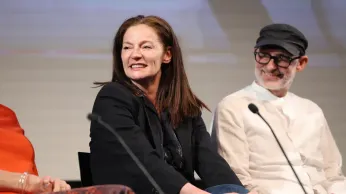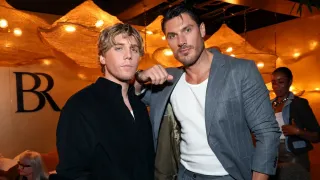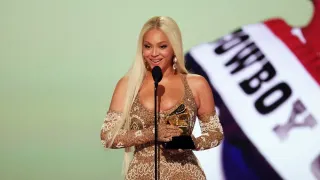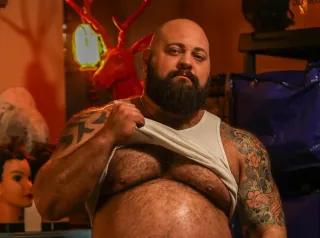
3 hours ago
Michelle Gomez Responds to Potter Audiobook Backlash: “I Understand Why This Is Painful”
READ TIME: 3 MIN.
Scottish actor Michelle Gomez, best known for her roles in “Doctor Who” and “Chilling Adventures of Sabrina,” was recently announced as the voice of Professor Minerva McGonagall in the latest Harry Potter audiobook adaptation. The announcement, however, was quickly met with a wave of criticism from LGBTQ+ individuals and allies, particularly on social media platforms, due to ongoing concerns about J.K. Rowling’s public statements on transgender rights. Gomez, a longtime favorite among queer fans, found herself at the center of a debate that highlights the complexities of representation, allyship, and the impact of art amid contentious public discourse .
In a public statement released on August 7, Gomez directly addressed LGBTQ+ fans, and specifically the transgender community, recognizing the distress caused by her involvement in a Harry Potter project. “I want to be clear that I stand with trans people, and I support trans rights – fully and without hesitation,” Gomez wrote. She continued, “When I accepted this role, I did so as someone who has always loved the stories and what they meant to so many – especially those who found comfort and identity in that world” .
Gomez further acknowledged the pain and disappointment many fans have felt in recent years. “I understand why this is painful, and I am listening,” she said, emphasizing her commitment to listening to the concerns of the LGBTQ+ community and using her platform to support those marginalized by the ongoing controversy .
The reaction to Gomez’s casting has highlighted the ongoing rift within the Harry Potter fandom. Many LGBTQ+ readers, and especially transgender people, have distanced themselves from the franchise in response to Rowling’s statements on gender identity and trans rights. Some fans expressed disappointment that Gomez, who has been considered an ally and role model within the queer community, would participate in a project associated with Rowling . Others, however, have voiced appreciation for Gomez’s transparency and her explicit support for transgender people.
The debate reflects broader questions about the responsibilities of artists and public figures when engaging with works whose creators have become sources of controversy. Gomez herself acknowledged the difficulty of navigating these intersections, stating her intention to remain accountable to her values and to the communities she supports .
Gomez’s statement and the ensuing dialogue underscore the challenges faced by LGBTQ+ fans in seeking inclusive representation in mainstream entertainment. The Harry Potter series, once cherished by many queer readers for its themes of chosen family and acceptance, has become a site of pain and exclusion for some due to the actions and views of its creator. The casting controversy has sparked renewed calls for greater accountability in the entertainment industry, with advocates urging artists and companies to prioritize trans-inclusive values in their work and partnerships .
Michelle Gomez’s commitment to standing with transgender people, even amid criticism, has been welcomed by some as a model for allyship. Her statement serves as a reminder that visibility and solidarity must be matched by active listening and an ongoing willingness to engage with the concerns of marginalized communities.
As the conversation continues, LGBTQ+ advocates emphasize the importance of centering trans voices in decisions about representation and storytelling in media. The Harry Potter audiobook controversy, and Gomez’s response, will likely remain a touchstone in ongoing discussions about the ethics of participation, the impact of public statements, and the future of inclusive culture within fandom spaces .






